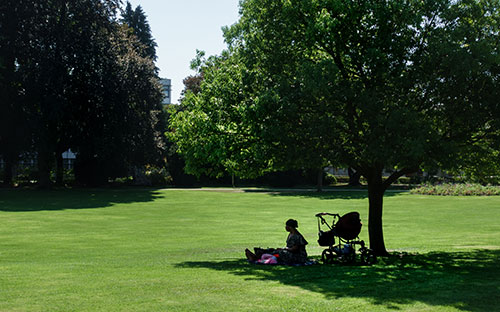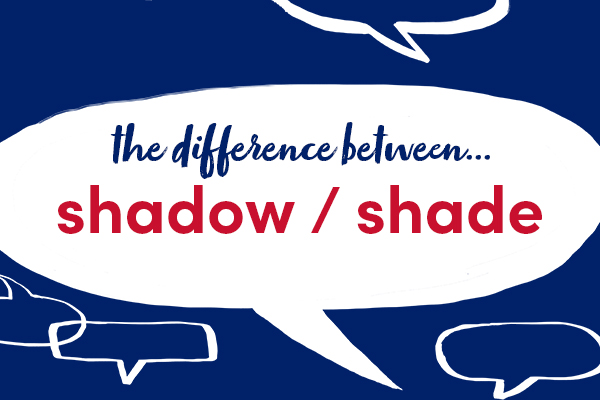This week we are looking at two words which are commonly confused: shadow and shade.
shadow

A shadow is a dark shape made on a surface when something stands between a light and the surface.
The tree cast a shadow over the garden.
If a place is dark because something prevents light from reaching it, you can say that it is in shadow.
The whole valley is in shadow.
shade

You refer to an area that is dark and cool because the sun cannot reach it as the shade.
They sat in the shade and read.
I moved my chair into the shade.
Find out more in our English Usage article.
This blogpost is based on Collins COBUILD English Usage, written for learners of English. For more examples of English usage points, please visit: https://grammar.collinsdictionary.com/english-usage.
All opinions expressed on this blog are those of the individual writers, and do not necessarily reflect the opinions or policies of Collins, or its parent company, HarperCollins.




collins_dictionary_official
The home of living language. #wotd #wordlovers #collinsdictionary
Read our word of the week definitions and blog posts: